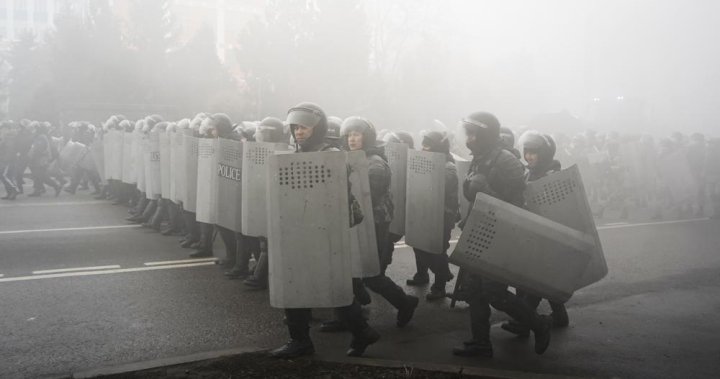
Kazakhstan appeals for help amid violent unrest. Here’s what you need to know.
Global News
Kazakhstan appealed for help from its ally Russia and other ex-Soviet republics after violent unrest erupted in Almaty, its biggest city.
Soldiers shot at protesters in Kazakhstan‘s biggest city Almaty on Thursday after days of violent unrest that prompted the government to declare a state of emergency and appeal for help from its ally Russia and other ex-Soviet republics.
As Russian paratroopers arrived in Kazakhstan, an oil-rich state long viewed as a bastion of stability in volatile Central Asia, police in Almaty said they had killed dozens of rioters while struggling to restore order.
Here is a snapshot of Kazakhstan, its economy and political system.
Kazakhstan, located between Russia and China and also sharing borders with three other ex-Soviet republics, is the largest economy in Central Asia, with rich hydrocarbon and metal deposits. It has attracted hundreds of billions of dollars in foreign investment since becoming independent in 1991.
Strategically, it links the large and fast-growing markets of China and South Asia with those of Russia and Europe by road, rail, and a port on the Caspian Sea. It has described itself as the buckle in China’s huge ‘Belt and Road’ trade project.
Kazakhstan is the top global producer of uranium and this week’s unrest prompted an 8% jump in the price of the metal that fuels nuclear power plants. It is the world’s ninth biggest oil exporter, producing some 85.7 million tonnes in 2021, and its 10th largest producer of coal.
It is also the world’s second largest miner of bitcoin after the United States. Bitcoin’s “hashrate” – the measure of computing power of machines plugged into its network – dropped by over 10% on Wednesday after Kazakhstan’s internet was shut off, according to crypto mining firm BTC.com.
The uprising began as protests in oil-rich western regions against the removal of state price caps on New Year’s Day for butane and propane, which are often referred to as ‘road fuels for the poor’ due to their low cost.

 Run 3 Space | Play Space Running Game
Run 3 Space | Play Space Running Game Traffic Jam 3D | Online Racing Game
Traffic Jam 3D | Online Racing Game Duck Hunt | Play Old Classic Game
Duck Hunt | Play Old Classic Game





